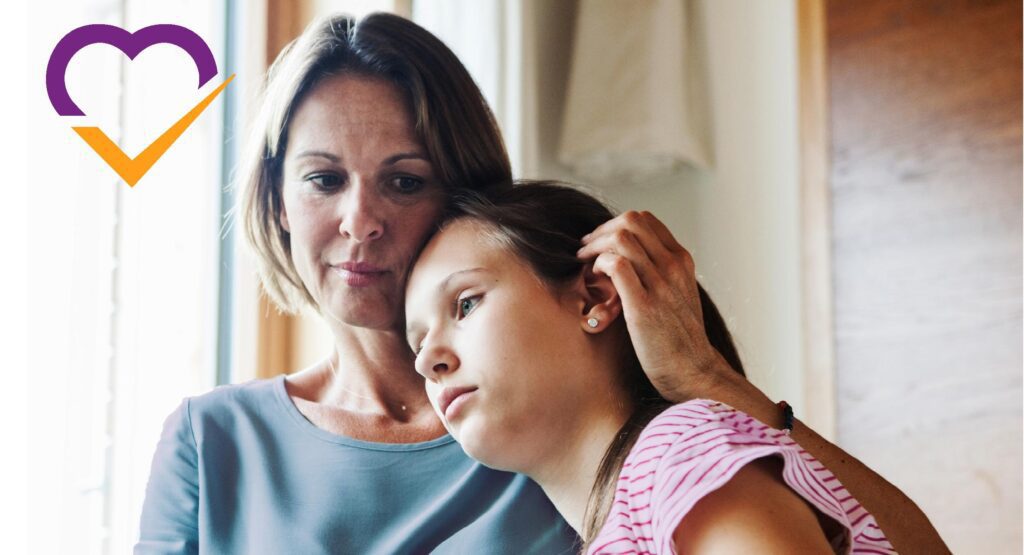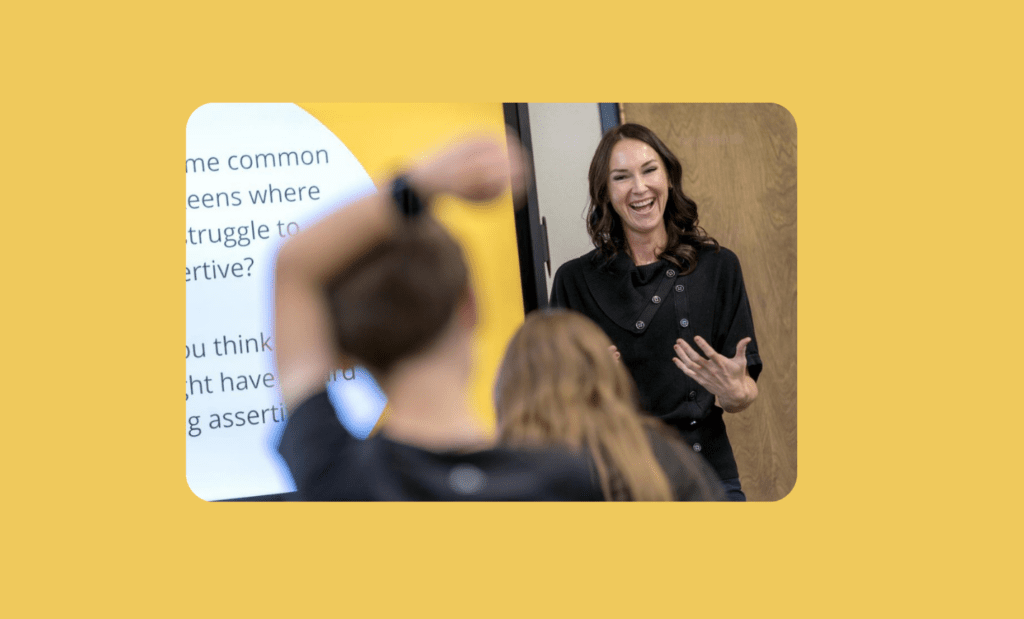3 Questions Linn County Middle School Students Ask About Alcohol
The Linn County Alcohol and Drug Prevention Program has been providing substance use prevention classes in Linn County schools for over 20 years. We asked instructors Sarah Daniels, Ashley LeFever, and Shannon Snair to share common questions middle school students have about alcohol — and how to answer them.
Are energy drinks alcohol?
No, energy drinks are not alcohol. While both are beverages, they affect the body differently. Energy drinks contain caffeine and sugar, which can provide a temporary boost in energy, but may also lead to jitteriness, difficulty sleeping, or a crash later on.
Alcohol, on the other hand, slows down brain and body functions, which can make you feel dizzy and tired; and can be harmful — especially to young people.
Plus, it’s illegal for minors to buy or consume alcohol. While energy drinks don’t have an age limit, they’re still not recommended for kids and teens.
Ashley’s pro tip for parents: Many canned and bottled beverages containing alcohol are marketed with colorful designs that may appeal to kids. Always check the label closely for alcohol content.

All adults drink a lot, don’t they?
Although media can make it seem like alcohol is everywhere, the truth is that most adults do not drink a lot. Research shows that in Oregon most adults (about 2/3) either do not drink at all, or drink in moderation.
It’s important to know that while drinking alcohol is not uncommon for adults, it still comes with risks. Alcohol can harm people’s social lives, health, and jobs. Drinking alcohol can also lead to alcohol use disorders, a medical condition in which someone has less ability to control or stop drinking.
Many adults choose not to drink because of medical conditions, their jobs, or to avoid the risks associated with alcohol.
Sarah’s pro tip for parents: Model healthy ways to deal with daily stressors that do not involve drinking alcohol.

What is the legal drinking age in Oregon? Why does it matter?
The minimum legal drinking age is the age when someone can legally buy and consume alcohol. In Oregon and every state in the U.S., that age is 21.
This national law was established to help protect young people’s health and safety. Before this law, some states allowed younger people to drink, but studies showed that after raising the drinking age to 21, there were fewer car accidents and drinking-related harms.
Underage drinking is a serious concern because it can lead to a range of problems, including injuries, risky behavior, and even mental health issues. Drinking at a young age can also interfere with brain development and lead to problems in school and increased chances of alcohol use disorders.
Shannon’s pro tip for parents: Explain to children that just because something is legal doesn’t mean that it is healthy. You can compare alcohol to cigarettes, which are legal but not healthy to use.
More Featured Resources
-

Alcohol: What families need to know to help protect young people
As parents and caregivers, we want to do all that we can to protect our children. In this guide, Partnership to End Addiction breaks down the risks of youth drinking, why it appeals to youth and what you can do to protect your child from its harms. Source: Partnership to End Addiction
-

Underage Drinking: Myth versus Fact
Teens see and hear a lot about alcohol—from TV, movies, music, social media, and their friends. But what are the real facts? Here are some common myths and facts about alcohol use. Source: Substance Abuse and Mental Health Services Administration (SAMHSA)
-

How Linn County Brings an Evidence-Based Program into Classrooms
Most Oregon kids don’t get science-backed drug prevention Source: The Lund Report/Oregon Public Broadcasting